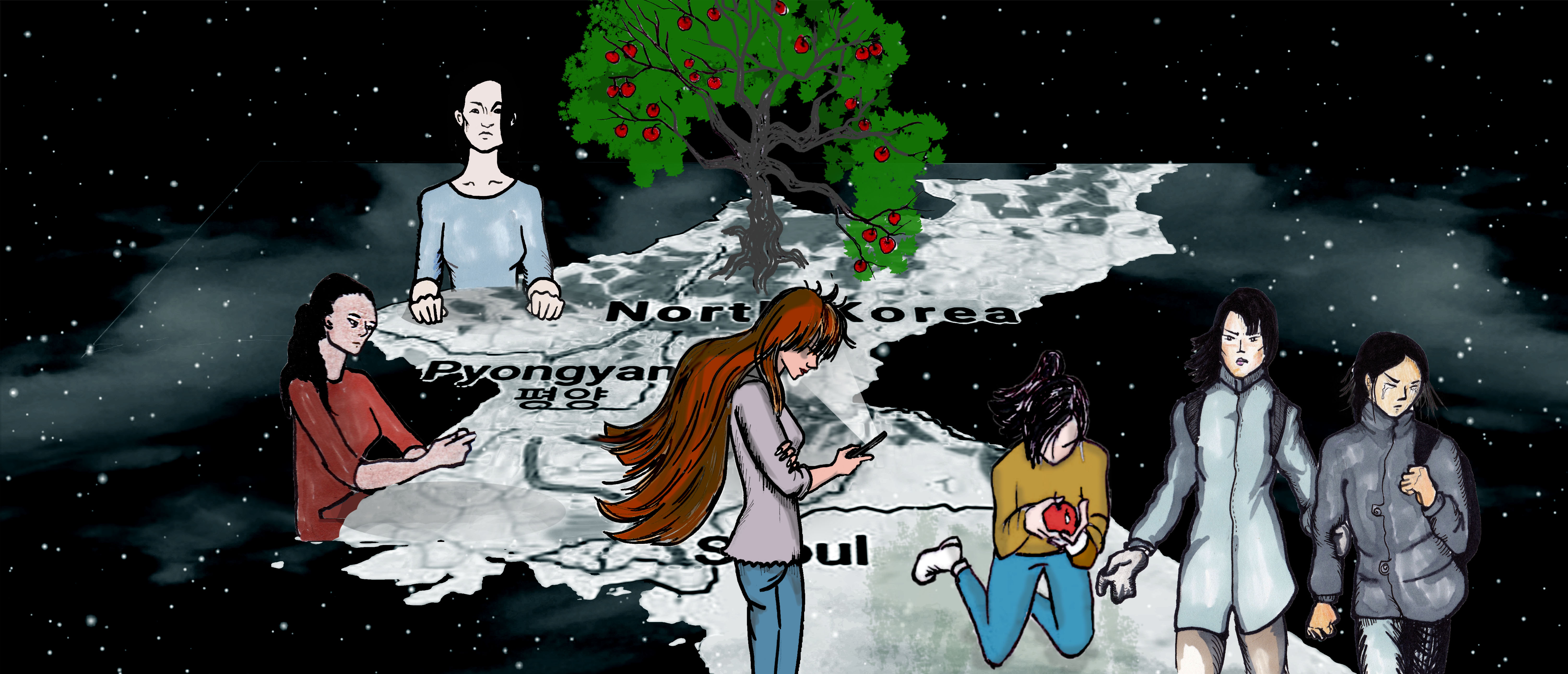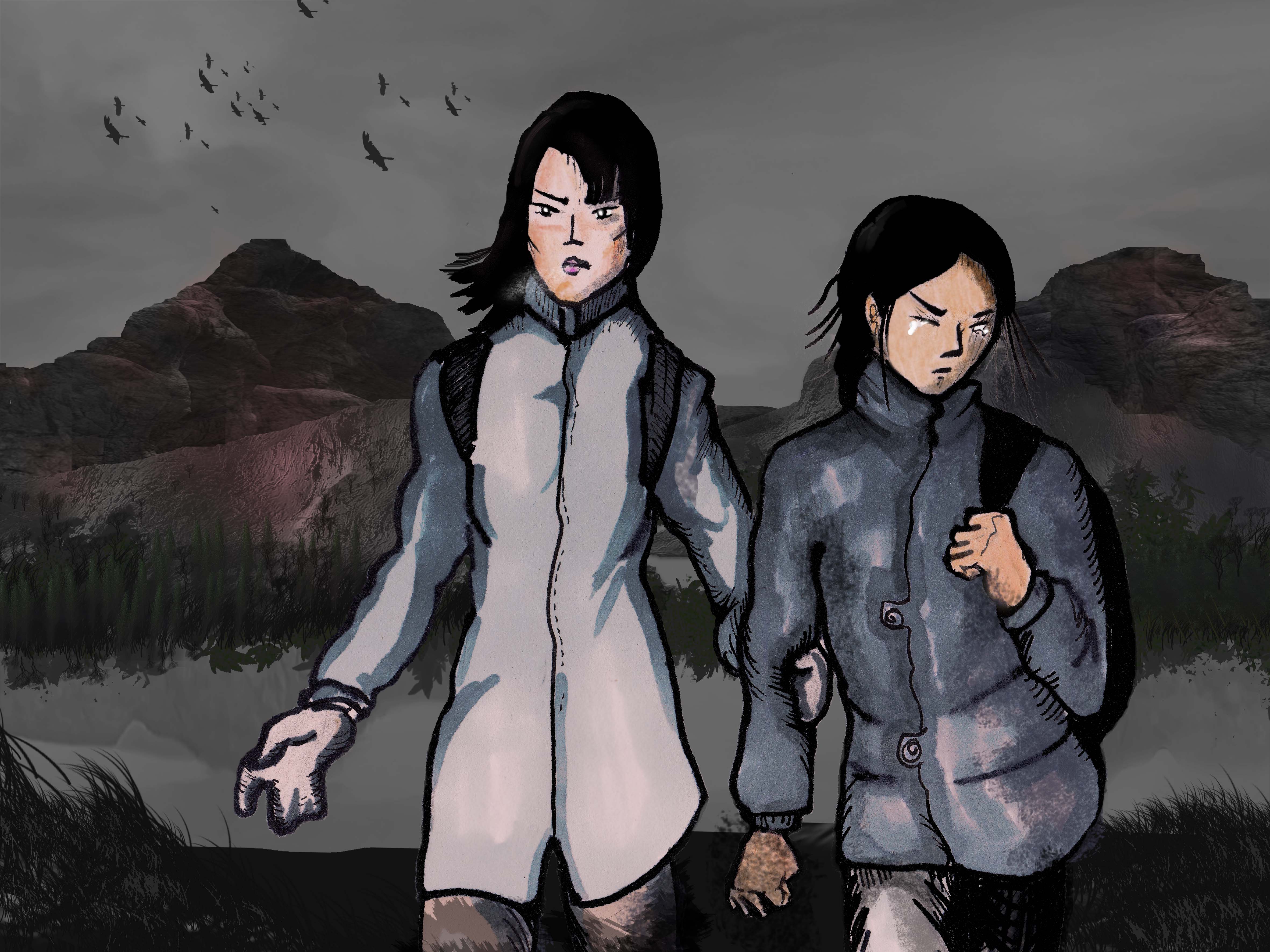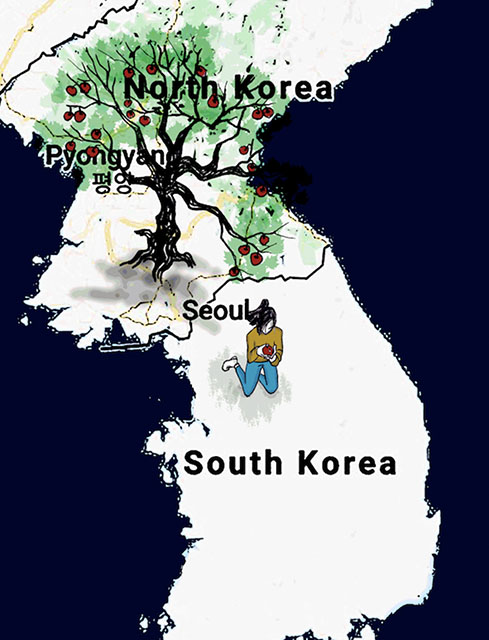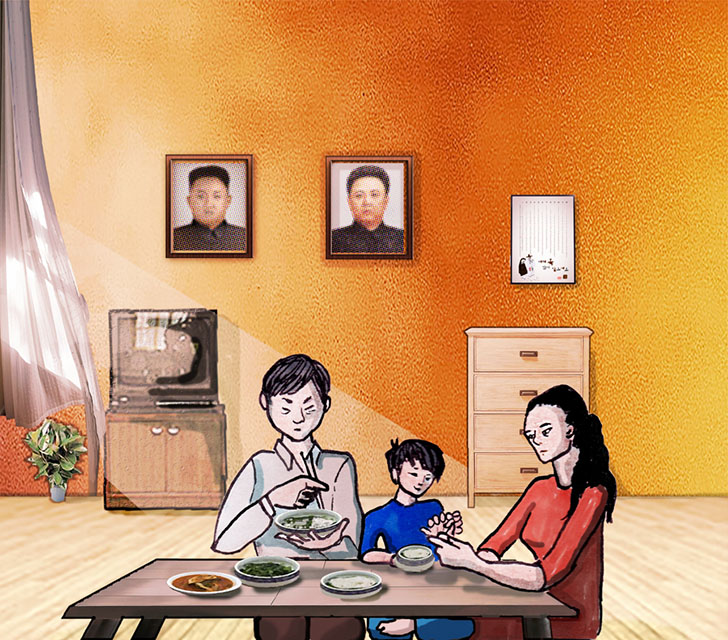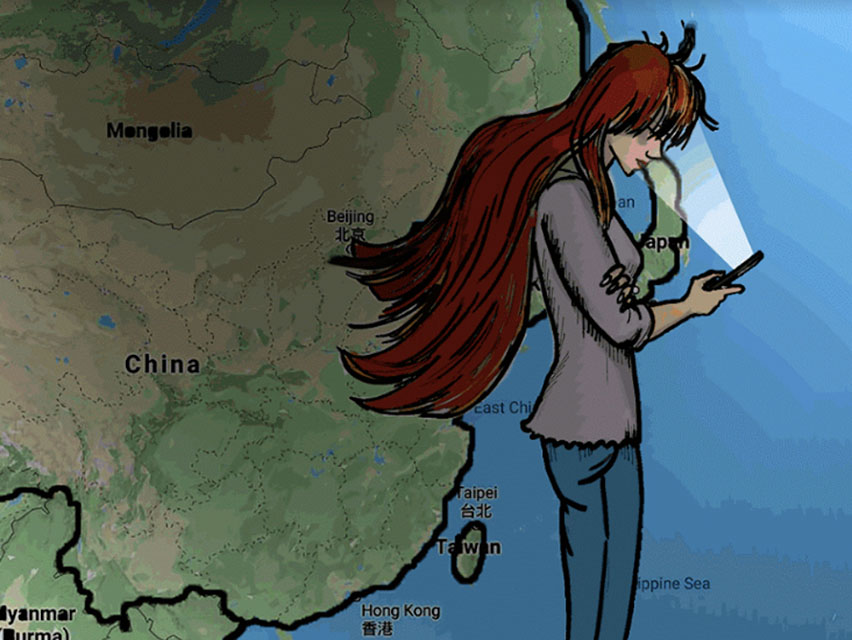Strained Relations:
How North Korean refugees struggle to integrate into South Korea
Kim Jong-un continues to dominate the news cycle while stories of North Koreans remain largely underreported. The distance between the totalitarian North and the capitalist South makes it easy to miss the nuances of North Korea. I found this to be true after observing the challenges North Koreans face while trying to survive in South Korea’s fast-paced society.
North Koreans’ history of trauma and violence makes it difficult for many refugees to hold jobs in the South’s competitive economy. Accordingly, a number of North Koreans find themselves unable to establish a social community.
30,000
North Korean refugees are living in south Korea
Even the apples were a bitter reminder
I met a North Korean woman who wanted to smuggle herself back into North Korea. She spent her youth living under the dictatorship of Kim Jong-il, and decided to defect to South Korea by way of China. When I asked her why she would ever consider going back to North Korea, she answered: “the apples.” She told me that the apples in North Korea were sweeter than the apples in South Korea. Her decision to leave North Korea meant parting with everyone in her life – her mother, her friends and her sweetheart – and now in South Korea – even the apples were a bitter reminder of the home she left behind.
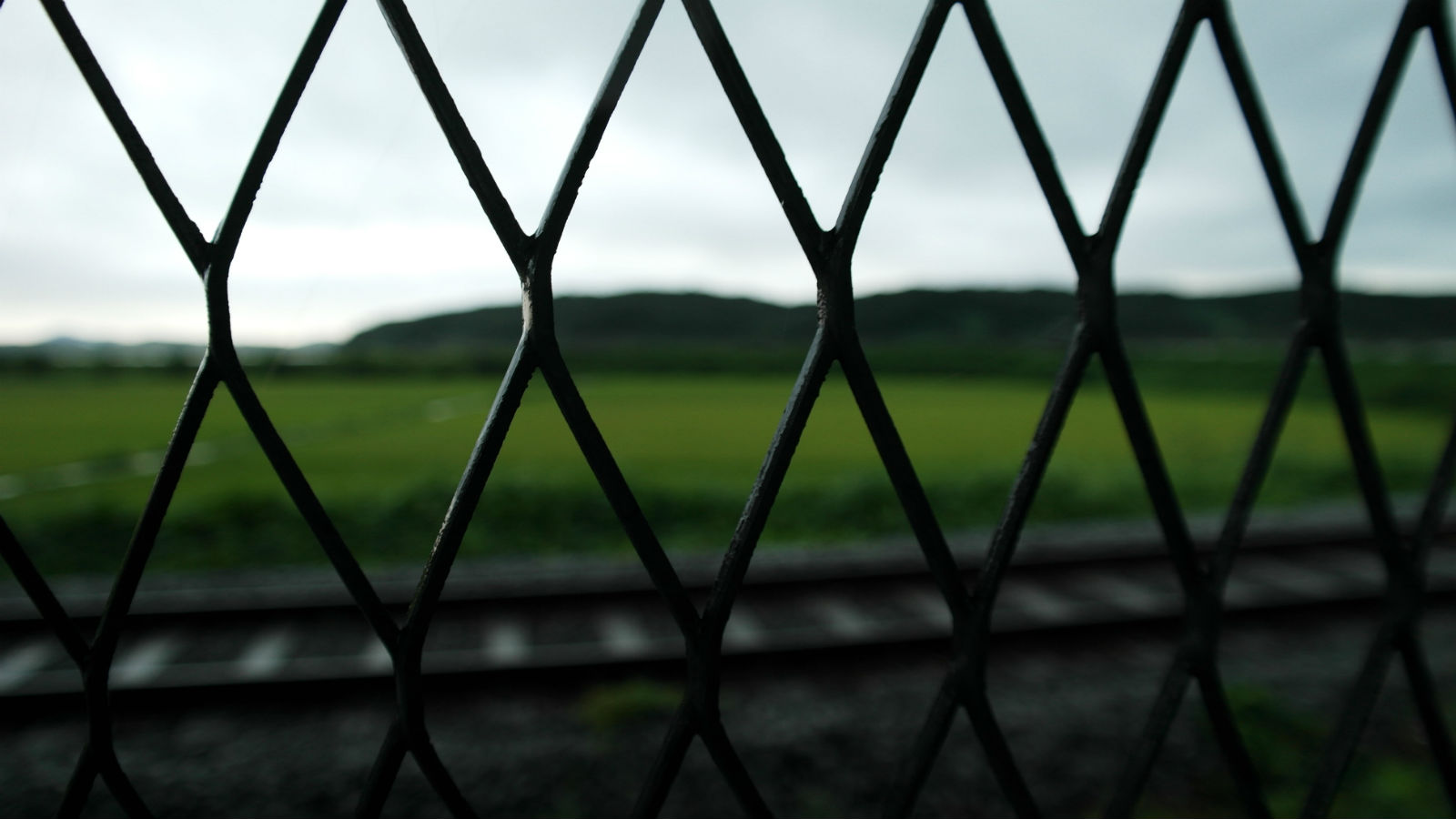
Near the border of North and South Korea and the demilitarized zone. [Photo © Ash Abraham]
STRANGERS IN SOUTH KOREA
Although North Korea shares a common language and ancestry with South Korea, the wounds of the Korean War have left many Koreans with hostility towards each other. It’s more common for North Koreans to be treated as strangers than as family in South Korea. For many North Korean refugees, this extreme social isolation leads to depression and even thoughts of suicide. While talks about denuclearization and reunification loom large, it’s important to ask why North Koreans are finding it challenging to integrate into South Korea today.
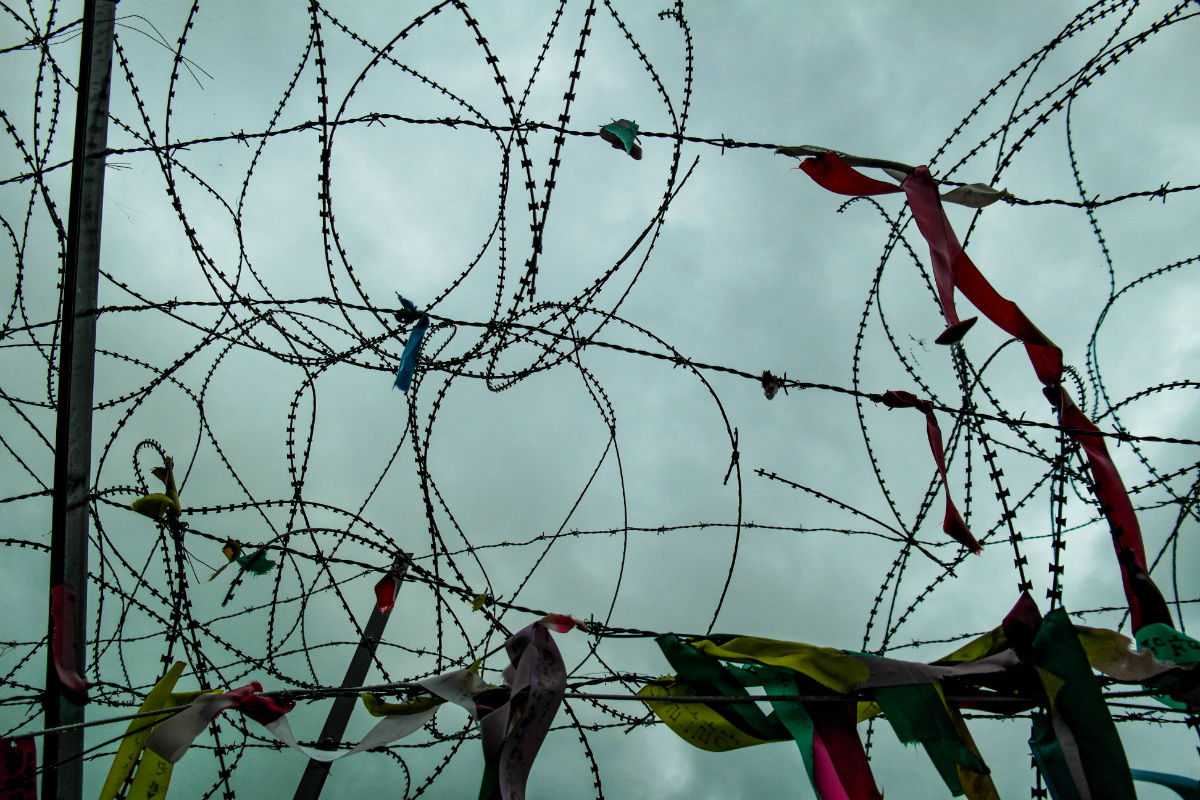
Imjingak is known as “Peace Park.” It is located at the border of North and South Korea. [Photo © Ash Abraham 2018]
This project
This project examines the effect social relationships have on the integration of refugees from North Korea into South Korea. Seventy per cent of all North Korean refugees living in South Korea are women, so this project takes a close look at the lives of five North Korean women.
Understanding social relationships is vital to understanding how the country will handle the disparities between the two nations when and if they reunite. Additionally, an integral component of security and diplomacy involves building relationships. Canada, a signatory to the UN Convention for Refugees, wants to join in the UN Security Council by 2020. This project identifies what role Canada can play in regards to North Korea and North Korean refugees.
A note about names and photos
The names of all of the North Korean refugees interviewed for this project have been changed. North Korea still enforces a three-generation punishment policy under which family members of defectors can be put in political prison. Defecting from North Korea is a state crime, so as to ensure the women’s safety in South Korea, and their family’s safety in North Korea, real names and photos of sources were not used. The exception is Jessie Kim, who does not have family living inside North Korea. She has decided to reveal her identity and is an outspoken critic of the regime.
Special Thanks
Thank you to the North Korean women who graciously shared their stories. To the family of Peter Stursberg, whose generous award funded this project. Special thanks to Eunice Jeong for interpretation and support. Thank you to Professor Cohen and Carleton University for guidance on this project. Much thanks to Golbon Moltaji for original artwork and illustrations. And to my husband Justin for everything else.
